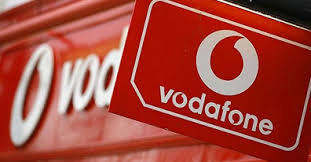 NEW DELHI: The Rs 11,200 crore-tax dispute with British telecom giant Vodafone continued to linger for yet another year, the period during which the government also toiled without success to bring in major tax reforms, especially, the GST and DTC.
NEW DELHI: The Rs 11,200 crore-tax dispute with British telecom giant Vodafone continued to linger for yet another year, the period during which the government also toiled without success to bring in major tax reforms, especially, the GST and DTC.
Besides Vodafone, several other major MNCs like Nokia and Shell too were locked in tax dispute with the revenue department.
Vodafone had offered to settle the dispute through conciliation to which the government agreed, but there has been no significant forward movement.
Several rounds of meetings have taken place with top executives of Vodafone and officials of Finance Ministry and some developments are expected in the New Year.
The telecom major is facing a tax liability of over Rs 11,200 crore, along with interest, on its 2007 acquisition of Hong Kong-based Hutchison Whampoa’s stake in India’s telecom major Hutchison Essar.
Besides this, Vodafone has also said it will challenge tax authorities’ order in a case related to sale of company’s call centre business, for which a demand of about Rs 3,700 crore was raised.
On the legislation front, despite repeated assurances by Finance Minister P Chidambaram, ambitious tax reforms — the Direct Taxes Code (DTC) and the Goods and Services Tax (GST) — are yet to see the light of the day for want of political consensus.
Dubbed as “game changers” by Chidambaram, these two important bills, when implemented, would change the entire tax collection system, both direct and indirect. It is believed that these two bills will not only help increase revenue collection, but also improve tax compliance.
Faced with widening current account deficit (CAD) and battering of rupee, the government hiked import duty on gold in tranches to 10 per cent during the year.
As far as revenue collection target for the fiscal is concerned, the Government is facing an uphill task amid slowing economy. Chidambaram, however, kept up pressure on tax evaders to come clean and take advantage of the service tax amnesty scheme. . With an aim to tighten noose on those who do not pay taxes, the Income Tax Department also sent letters to about 12 lakh assessees who were high spenders but did not file returns.
Other highlights of the year on tax front was imposition of 0.01 per cent transaction tax on non-agri futures traded on the bourses amid apprehensions that the move will lead to shifting business to either illegal ‘dabba’ trading or overseas commodity exchanges.
Government also raised surcharge to 10 per cent on companies with annual taxable income of Rs 10 crore and above.
In its bid to increase service tax collection, the government also made eating out at an air-conditioned restaurant and parking vehicle at places like malls more expensive, imposing the levy at the rate of 12 per cent.
The safe harbor norms to ensure certainty in taxation of overseas transactions between related entities and reduce transfer pricing litigations too have been notified.
The IPL spot-fixing scandal and NSEL payment crisis also kept the Income Tax sleuths on their toes during the year.
In April, President Pranab Mukherjee highlighted that the practice of multi-national companies parking their profits in tax havens to evade or avoid taxes is a challenge for the tax department. -PTI





